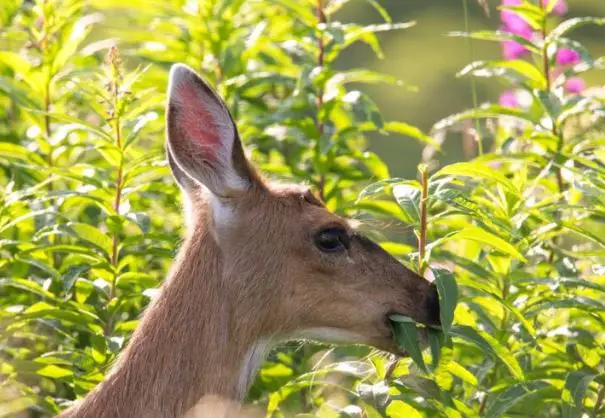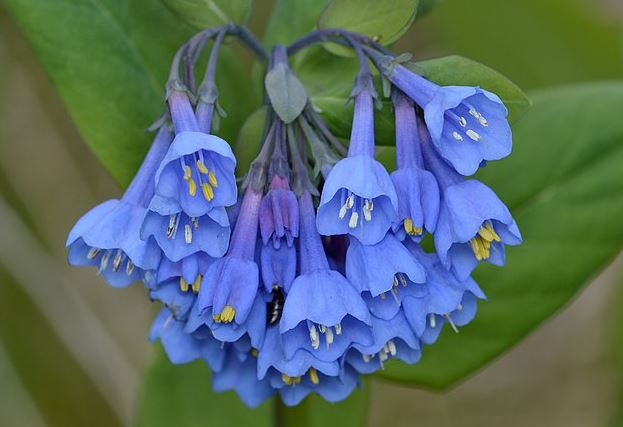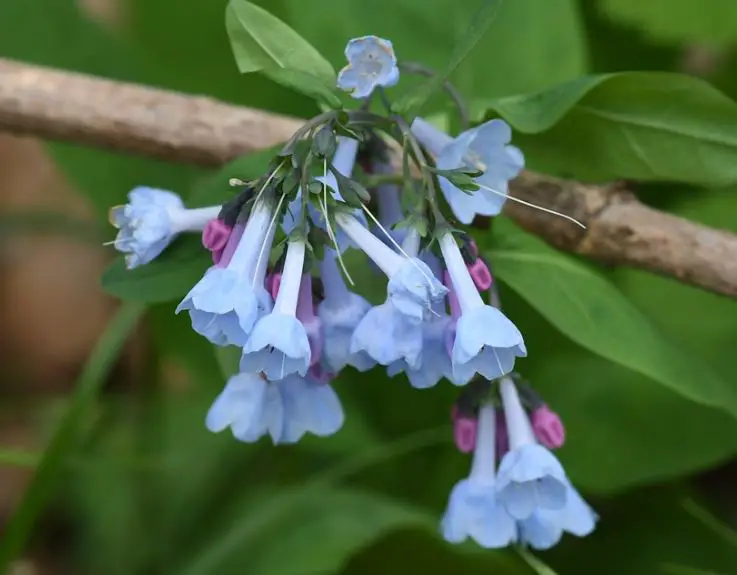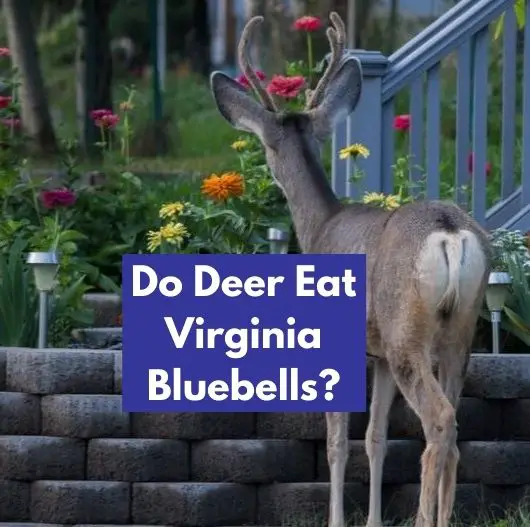If you’re an avid gardener, you may have Virginia bluebells in your outdoor plant collection. Virginia bluebells are beautiful flowers that add a touch of elegance to any garden. But do deer eat Virginia bluebells?
Deer do not usually eat Virginia bluebells. Virginia bluebells are deer-resistant because of their strong scent and bitter taste. But a hungry deer will eat almost anything, which may include Virginia bluebells plants.
Considering that a single deer can eat up to ten pounds of plants each day, you can see how deer eating Virginia bluebells can really do some serious damage to your garden!
In this article, we’ll discuss how to stop deer from eating your Virginia bluebells, and keep them healthy and beautiful all season long.
Why Do Deer Eat Virginia Bluebells?

As we covered, deer usually stay away from Virginia bluebells thanks to their strong scent and bitter taste.
Deer are most likely to eat Virginia bluebells during spring because they’re hungry after a long winter, or if it’s late in fall and other food sources have been depleted.
Your Virginia bluebells are less susceptible to deer damage later in summer when many other food sources they prefer are available.
Deer can do some serious damage to a large amount of Virginia bluebells in a single sitting if they’re hungry enough!
This was confirmed in a 1999 study on deer plant eating habits by Cornell University.
And don’t think that your newer Virginia bluebells are safer either: deer actually prefer new growth because they’re more tender.
Are Virginia Bluebells Deer Resistant?

Virginia bluebells are regarded as deer resistant thanks to their taste and scent, both of which deer do not like.
They were rated as “seldom severely damaged” in a study on deer resistant plants by Rutgers University.
The bitter taste of the flowers and leaves usually keep deer away.
Deer have a keen sense of smell, and the strong scent of Virginia bluebells also repels them.
As we mentioned earlier, just because Virginia bluebells are deer resistant doesn’t mean they are completely safe from being eaten by deer.
You should always take additional steps to deter deer from your Virginia bluebells and other plants and flowers.
Read on to learn more.
How Do I Keep Deer From Eating My Virginia Bluebells?

There are a few things to keep in mind when you’re protecting Virginia bluebells from hungry deer: their habits, your scent, repellent options, and when you plant them.
Deer will eat nearly anything if they’re hungry enough, so your main goal is making your garden as least inviting to deer as possible.
Check out our guide on how to keep deer from eating plants where we cover 25 quick and easy tips for keeping hungry deer out of your garden.
Will My Virginia Bluebells Grow Back After Deer Eat Them?
Fortunately, Virginia bluebells can bounce back from browsing by deer if given some care, attention, and time.
Virginia bluebell plants are considered perennials, so they’ll grow back each year.
Virginia bluebells are pretty good at reseeding themselves, so even if a deer tears these flowers up, you should see new ones bloom the following season.
Do Deer Eat Virginia Bluebells? Wrapping Things Up
So, do deer eat Virginia bluebells?
Not usually, but they will if they’re hungry enough.
Deer will usually stay away from Virginia bluebells, but may eat them during spring when they’re hungry after a long winter or in late fall when other food sources have been depleted.
Have any observations to add to the discussion? Be sure to let us know in the comments below.
Check our our other helpful wildlife guides while you’re here:


